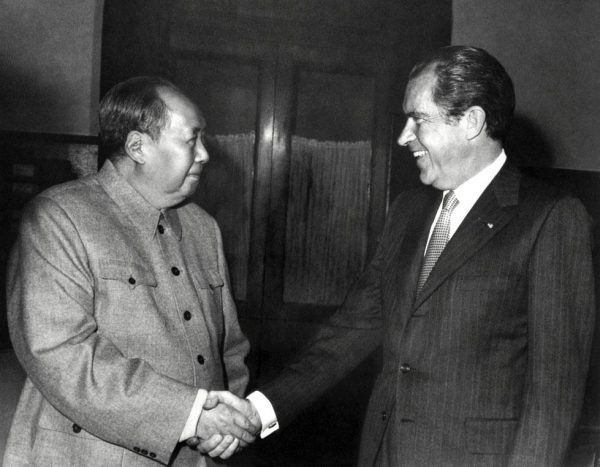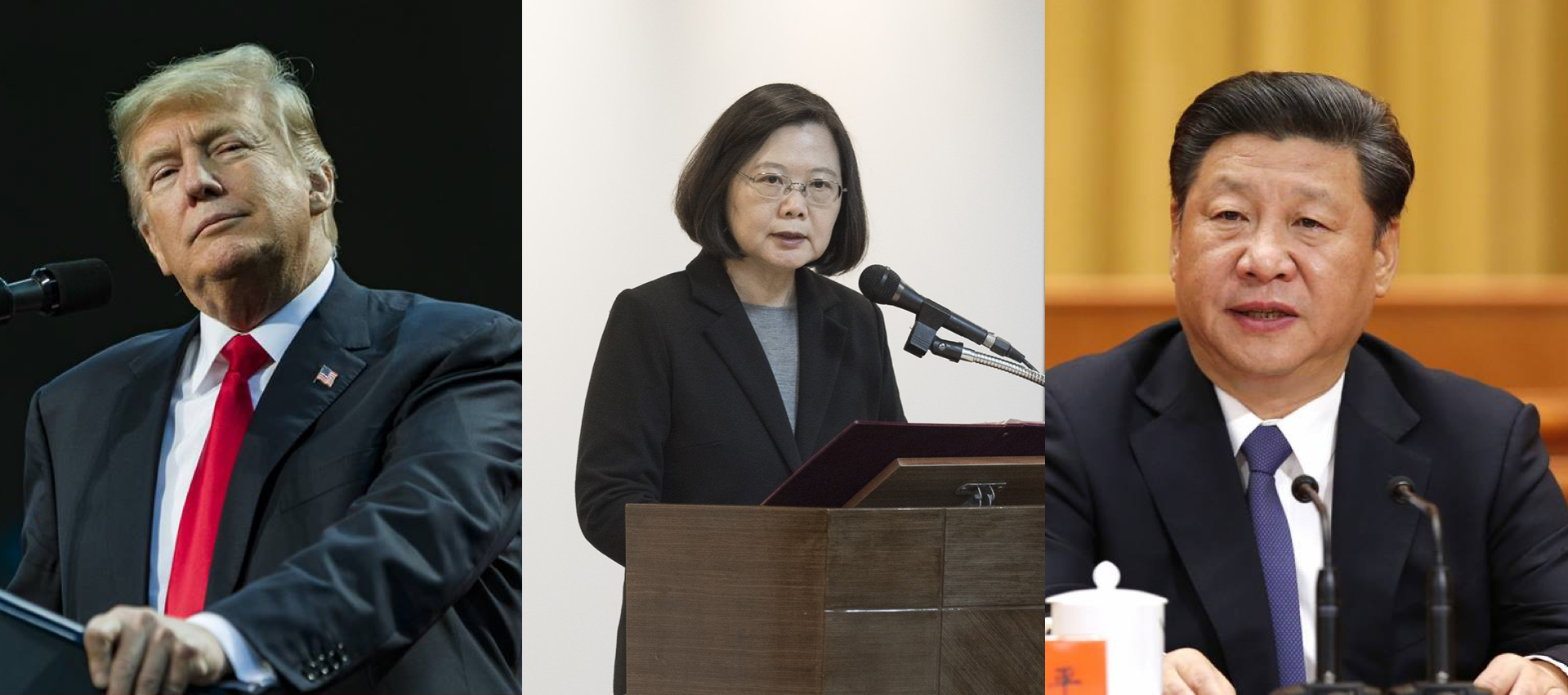It's nice to know that while we go about our daily lives, war can break out at any moment.
On March 17, US President Donald Trump signed a new law called the Taiwan Travel Act.
In response, the state-run Chinese newspaper Global Times has said that the mainland must prepare itself for a "direct military clash" in the Taiwan Straits.
But what is it about the Taiwan Travel Act that's raised China's ire?
Nixon
To understand what's going on, we need to talk about the previous law for US-Taiwan relations, the Taiwan Relations Act.
Way back in the early 1970s, Richard Nixon traveled to mainland China, becoming the first US President to do so.
This visit reversed 25 years of no official diplomatic ties between the US and the People's Republic of China. Previously, the US had only recognised the Republic of China as the sole government of all of China.
 Pic from Asia Society.
Pic from Asia Society.
Carter
In 1979, President Jimmy Carter further codified the relations between Taiwan and the US by signing the Taiwan Relations Act.
While the Act does not guarantee that the US will intervene with military force if Taiwan is attacked, it also allows the US to supply Taiwan with "arms of a defensive character".
The Act also authorises diplomatic relations with the governing authorities of Taiwan. However, as part of the deal, the US also imposed certain "unwritten rules".
These include the rule that the five top officials of Taiwan:
- President
- Vice president
- Premier
- Foreign minister
- Defence minister
...are not allowed to visit Washington, while high-level US officials are not allowed to visit their counterparts in Taiwan.
And this has worked out more or less okay, until March 2018.
[related_story]
Trump
Let's look at the act that Trump signed.
Section 3B of the Taiwan Travel Act states that it will be US policy to allow officials "at all levels" of the government to visit Taiwan.
It also allows high-level Taiwanese officials to enter the United States and meet with Cabinet-level officials.
This means that the Act explicitly allows what was previously implicitly forbidden.
Just a few days afterwards, US Deputy Assistant Secretary of State Alex Wong visited Taiwan to attend a dinner hosted by the American Chamber of Commerce in Taipei on March 21.
At a reception, he said:
"Taiwan can no longer be excluded unjustly from international fora. Taiwan has much to share with the world. I can assure you, the United States government and the United States private sector will do their part to ensure Taiwan’s stellar international example shines brightly.”
The reception was attended by Taiwan's President Tsai Ing-wen, a member of the pro-independence Democratic Progressive Party.
Tsai has welcomed the passage of the Act into law, saying:
"We were pleased President Trump signed the Taiwan travel act into law. We are grateful to the Trump administration and to members of the Congress for supporting this bill."
But the Chinese are not happy with this development, with the Chinese Embassy in Washington stating on March 17 that China was "strongly dissatisfied" with the Act, and opposes it for violating the "One-China principle".
War?
On March 21, the Global Times published an editorial containing some strong phrases about the proper response to Trump's new law.
It states that while such visits may be "largely ceremonial" for now, it may lead to a slippery-slope effect where eventually a US leader and a Taiwanese leader could meet, thereby encouraging leaders of other countries to do the same.
"We must strike back against Washington's implementation of the Taiwan Travel Act."
So what does the Global Times think should be done?
- Beijing should not allow senior US officials who have visited Taiwan to enter the mainland.
- China should "pressure" the US in other areas of bilateral cooperation, such as North Korea and Iran, and "set itself against" the US in international forums like the United Nations.
- China should also "move fast" to establish diplomatic ties with Taiwan's allies to "squeeze" its space in the international community.
- Fourth and perhaps the most terrifying, "the mainland must also prepare itself for a direct military clash in the Taiwan Straits." The Global Times also suggests that Beijing could send military planes and warships across the Taiwan Straits middle line.
 Pic from The Simpsons.
Pic from The Simpsons.
Tariffs
This is not the first provocative act that Trump has made against the Chinese.
On March 1, Trump announced that he intended to slap a 25 per cent global tariff on imports of steel into the US, as well as a five per cent tariff on aluminium imports.
This was a move widely seen as targeting China, as Trump has repeatedly blamed "unfair" trade deals with China for hurting the US economy.
On March 23, Trump enacted tariffs targeting US$60 billion in Chinese goods over what he claims is misappropriation of US intellectual property.
On his part, Chinese President Xi Jinping has warned Taiwan against any plans for independence after he was granted the opportunity to rule beyond two terms following the removal of term limits.
At the conclusion of the National People's Congress on March 20, he said:
"All acts and tricks to split the motherland are doomed to failure and will be condemned by the people and punished by history. Every inch of our great motherland's territory cannot be separated from China."
Related stories:
Top image from Donald Trump, Tsai Ing-Wen and Xi's Visit Facebook pages.
If you like what you read, follow us on Facebook, Instagram, Twitter and Telegram to get the latest updates.
